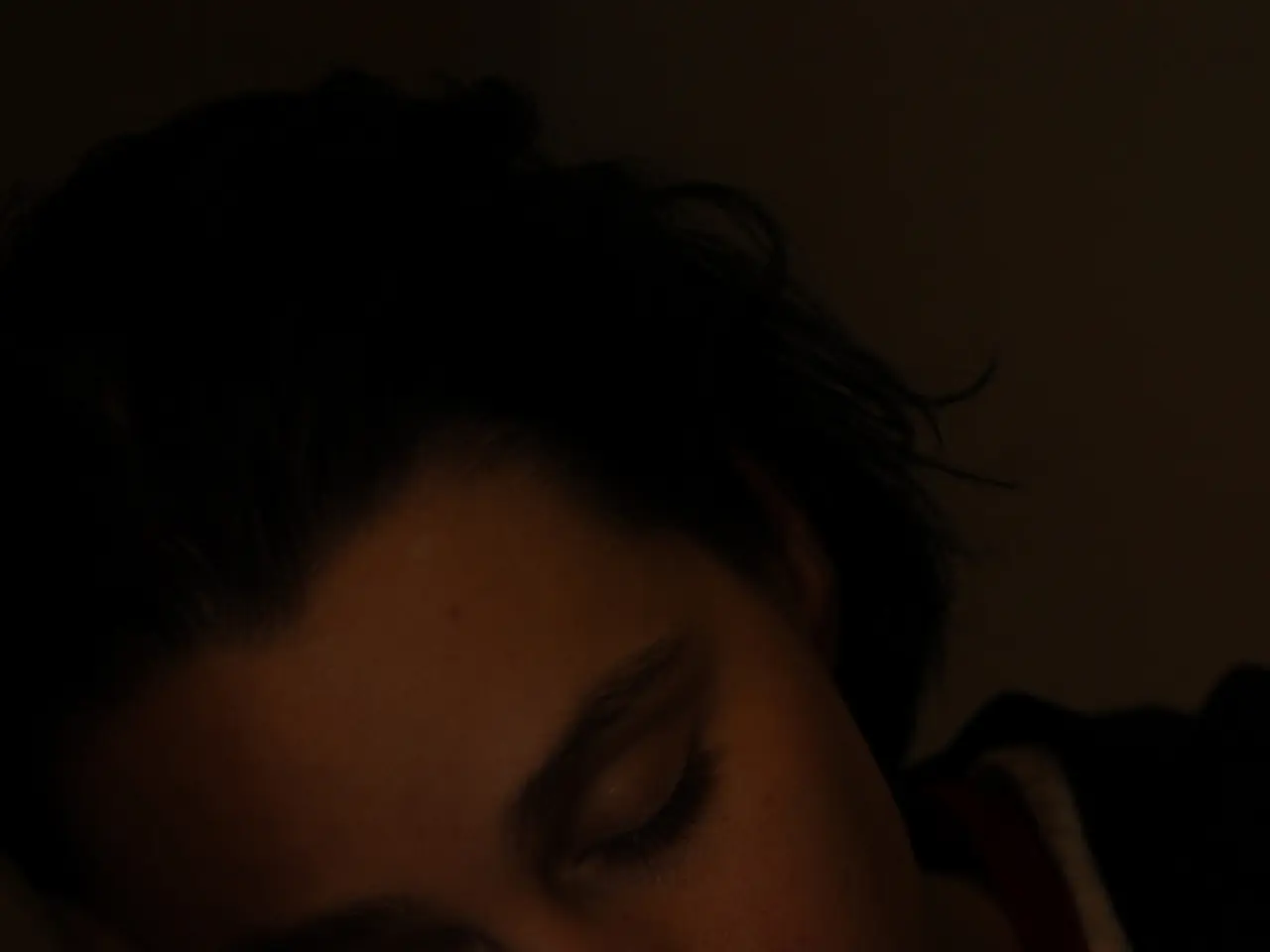Summer Sleep Challenges: Reasons Behind Summer Sleeplessness
In the heart of summer, when days are long and nights are warm, many people may find themselves struggling with sleep. A recent study suggests that even in modern environments, sleep remains seasonally affected, with daylight playing a significant role in disrupting the sleep-wake cycle.
The brain's suprachiasmatic nucleus, a key regulator of sleep patterns, uses light as a cue to set our internal clocks. Longer daylight hours and late sunsets delay the release of melatonin, a hormone that regulates sleep, making it harder to fall asleep at the usual time. Early sunrises also cause earlier wake times, shortening total sleep duration.
The result? Summer insomnia, a condition that can cause issues with sleep quality, mood, concentration, and even metabolic health. Studies show that total sleep is about an hour shorter in summer compared to winter, with REM sleep, critical for emotional regulation and memory consolidation, accounting for roughly half the sleep loss. Slow-wave sleep, essential for tissue repair, immune regulation, and factual memory consolidation, also reaches its annual low around the autumn equinox.
However, it's not just daylight that affects sleep quality during the summer months. Temperature is another factor to consider. On muggy summer nights, increased temperature can make falling asleep difficult. To counteract this, keeping things cool, such as using fans or lukewarm showers before bed, helps the body achieve the necessary one-degree drop in core temperature for good sleep.
People with a "morning chronotype" (larks) may find themselves waking up even earlier than they normally do because of the early summer sunrise. Conversely, "evening chronotypes" (night owls) may stay up even later when it stays bright past 10pm in summer.
For those experiencing summer insomnia, several strategies can help:
1. Maximise morning sunlight exposure: Getting natural light early in the day helps reset and stabilise the circadian rhythm, promoting better sleep at night.
2. Limit evening light exposure: Using blackout curtains or dimming lights in the evening can encourage melatonin production and make it easier to fall asleep.
3. Maintain a consistent sleep schedule: Going to bed and waking up at regular times helps reinforce the body clock despite changing day lengths.
4. Manage temperature: Keeping the bedroom cool can reduce discomfort and improve sleep quality.
5. Engage in outdoor activities like gardening: Exposure to daylight through activities such as gardening provides fresh air, exercise, and vitamin D, all of which support better sleep patterns.
By implementing these strategies, individuals can counteract the disruptive effects of extended daylight and heat on sleep during the summer months and ensure a restful night's sleep.
[1] Roenneberg, T., Allebrandt, C., Merrow, M., Vetter, I., & Wirz-Justice, A. (2003). Timing of sleep and circadian physiology in humans: a review. Sleep Medicine Reviews, 7(4), 281-299.
[2] Czeisler, C. A., Gooley, J. J., Tsai, M. Y., Sack, R. L., & Schwab, T. W. (2009). Sleep, circadian rhythms, and sleep disorders: an update for healthcare providers. Journal of Clinical Sleep Medicine, 5(5 Suppl), S7–S26.
[3] Wurtman, R. J., Wurtman, J. J. (2005). Light, melatonin, and sleep. Sleep Medicine Clinics, 1(1), 17-25.
[4] Roenneberg, T., Merrow, M., Vetter, I., Wirz-Justice, A. (2006). Human circadian physiology: the biological clock and its implications for modern society. Current Biology, 16(16), R577-R586.
[5] Irwin, M. R., & Schulz, J. B. (2017). The impact of light on sleep. Sleep Medicine Clinics, 12(1), 1-10.
- Despite the long and warm summer nights, the university research reveals that sleep remains seasonally affected, with daylight playing a significant role in disrupting the sleep-wake cycle, much like the suprachiasmatic nucleus' use of light to set internal clocks.
- A recent study suggests that during the summer months, the brain's slow-wave sleep, essential for tissue repair, immune regulation, and factual memory consolidation, reaches its annual low around the autumn equinox, making it harder to maintain good health and wellness.
- Incorporating fitness and exercise routines into one's summer schedule can be beneficial for sleep, as engaging in outdoor activities like gardening exposes the body to daylight, providing fresh air, exercise, and vitamin D – all of which support better sleep patterns.
- To prevent sleep disorders, news sources recommend following science-backed strategies such as maximizing morning sunlight exposure, limiting evening light exposure, maintaining a consistent sleep schedule, managing temperature, and staying active during daylight hours. By doing so, individuals can counteract the effects of extended daylight and heat on sleep during the summer and ensure a restful night's sleep, benefiting from optimal sleep quality, mood, memory consolidation, and overall metabolic health.




